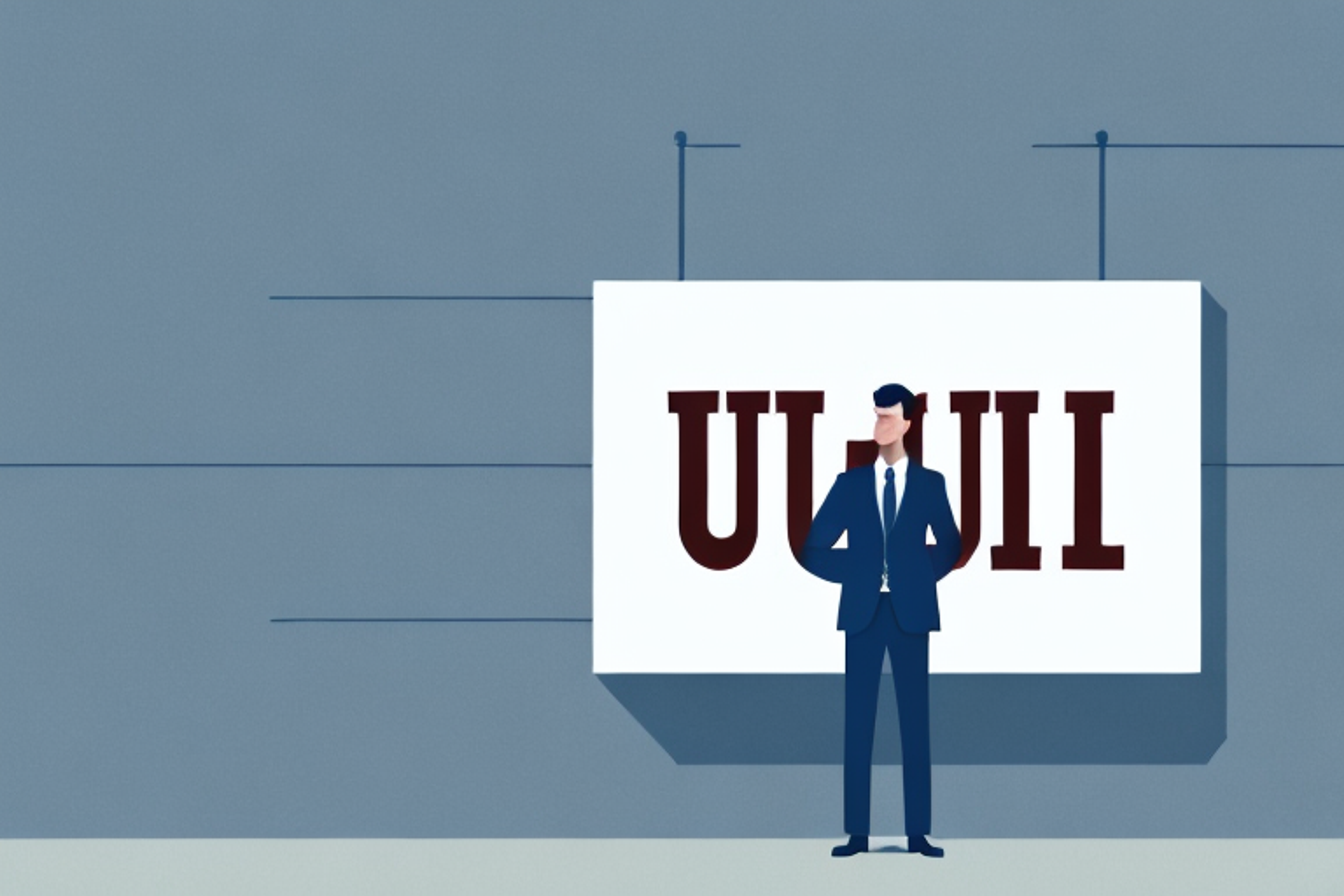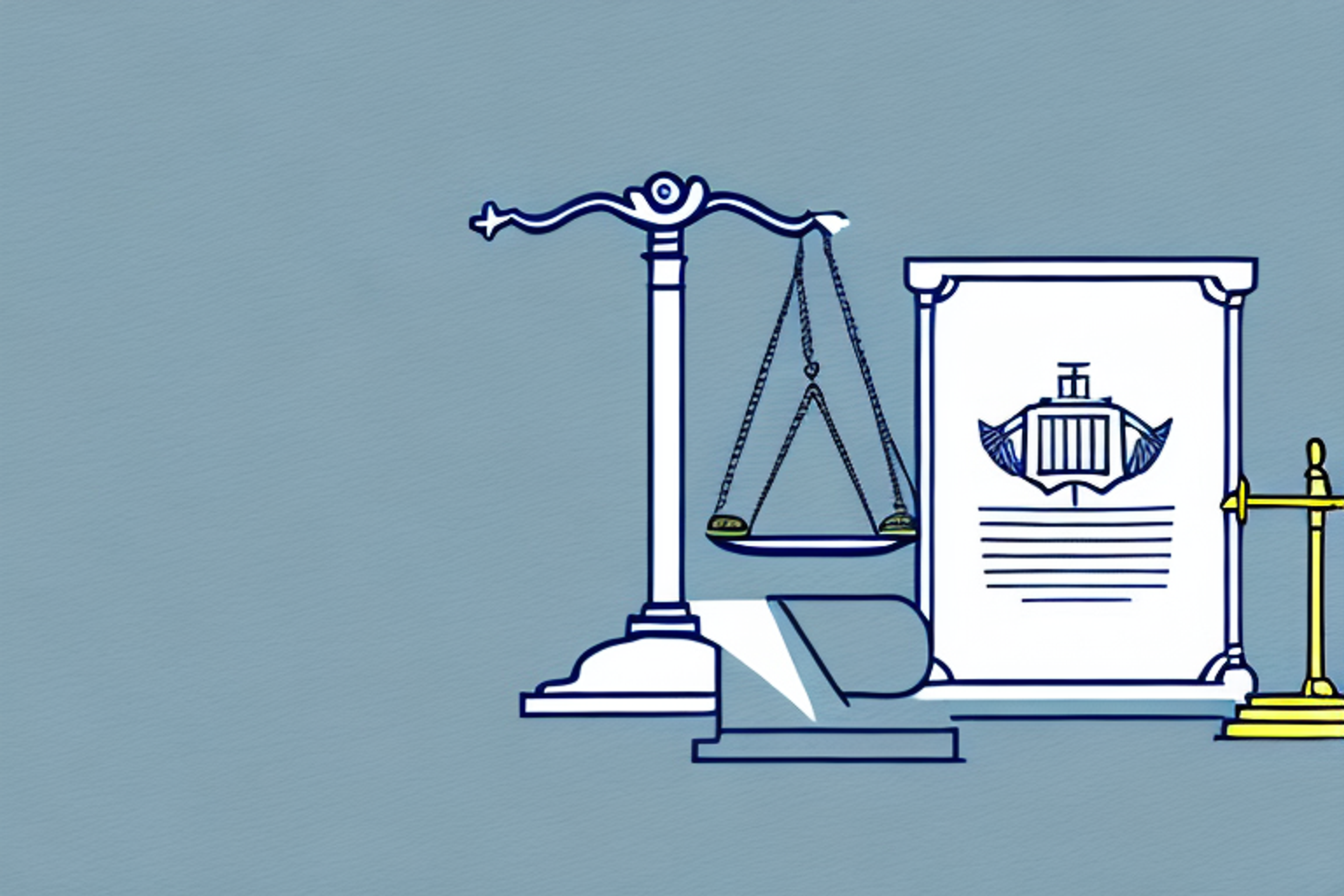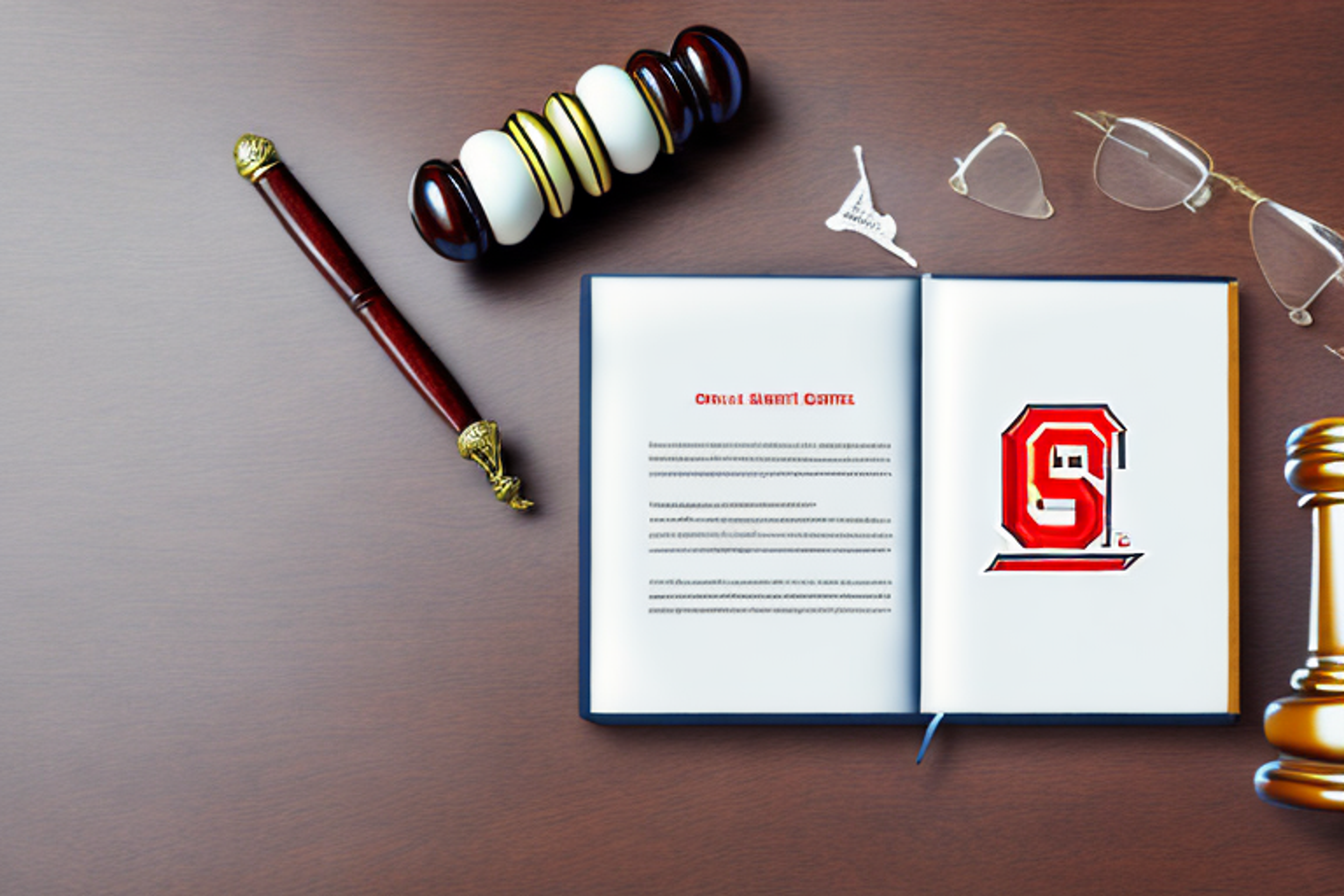How to Write a Compelling Personal Statement for Fordham University School of Law
Learn how to craft a winning personal statement for Fordham University School of Law with our comprehensive guide.
Posted May 12, 2023

Featuring Yoshana H.

The Nuts & Bolts of Law School Admissions: How to Plan for Success
Starting friday, december 6.
5:00 PM UTC · 30 minutes
Table of Contents
If you're considering applying to Fordham University School of Law, then you likely already know that a personal statement will be a key component of your application. In fact, a well-crafted personal statement can be the difference between being accepted or rejected from law school. That's why it's important to understand how to write a compelling personal statement that showcases your strengths and uniqueness as a candidate. In this article, we'll guide you through the process of writing a personal statement for Fordham University School of Law, step-by-step.
Understanding the Importance of a Personal Statement in Law School Admissions
A personal statement is your opportunity to tell the admissions committee about yourself - who you are, what experiences have shaped you, and what unique qualities you can bring to the table as a law student. It's essentially your chance to make a case for why you would be a good fit for Fordham University School of Law. A strong personal statement can help distinguish you from other applicants with similar academic backgrounds. Essentially, it's your chance to show the admissions committee what makes you stand out as an applicant.
One important thing to keep in mind when writing your personal statement is to avoid cliches and generic statements. Admissions committees read hundreds of personal statements, so it's important to make yours stand out. Instead of simply stating that you are passionate about law, provide specific examples of experiences that have led you to pursue a career in law.
Another key aspect of a strong personal statement is demonstrating your writing skills. Law school requires a lot of reading and writing, so admissions committees want to see that you are capable of expressing yourself clearly and effectively. Be sure to proofread your personal statement carefully and consider having someone else review it as well.
Researching and Understanding the Values of Fordham University School of Law
Before you start writing your personal statement, it's important to research Fordham University School of Law and understand its values. You want to make sure your personal statement aligns with what the law school is looking for in its candidates. Take some time to read about Fordham's mission statement and core values, and think about how you can demonstrate your fit, both in the content of your essay and in the way you present yourself.
One of the core values of Fordham University School of Law is social justice. This means that the school is committed to promoting fairness, equality, and human rights in the legal system. As you write your personal statement, consider how you have demonstrated a commitment to social justice in your past experiences and how you plan to continue this work as a law student and future lawyer. You may also want to research the various social justice initiatives and clinics offered at Fordham and discuss how you hope to get involved in these programs.
Choosing the Right Personal Statement Prompt for Fordham University School of Law
Fordham University School of Law typically provides several prompts for the personal statement. It's important to choose the prompt that best allows you to showcase your strengths and unique qualities. Don't be afraid to think outside of the box and choose a prompt that allows you to tell a creative and compelling story with your personal statement.
One important factor to consider when choosing a personal statement prompt is to ensure that it aligns with your career goals and interests. For example, if you are interested in pursuing a career in environmental law, you may want to choose a prompt that allows you to discuss your passion for environmental issues and how it has influenced your decision to pursue a legal career.
Another important aspect to keep in mind is to avoid choosing a prompt that is too broad or generic. Instead, try to choose a prompt that allows you to provide specific examples and anecdotes that highlight your skills and experiences. This will help your personal statement stand out and make a lasting impression on the admissions committee.
Brainstorming Unique and Relevant Personal Experiences to Include in Your Statement
One of the most important parts of writing a personal statement is choosing the right experiences to highlight. You should aim to choose experiences that are both relevant to your interest in law and unique to you as a candidate. Think about experiences that demonstrate your leadership, problem-solving skills, or commitment to social justice. Be sure to choose experiences that speak to your personal qualities and experiences, and that demonstrate your qualifications for law school.
When brainstorming experiences to include in your personal statement, it can be helpful to consider experiences outside of the classroom. For example, you may have volunteered at a legal aid clinic or interned at a law firm. These experiences can demonstrate your interest in the field and give you a unique perspective on the legal system.
Additionally, don't be afraid to include personal experiences that have shaped your perspective on the world. For example, if you have overcome a significant obstacle or faced discrimination, you can use these experiences to demonstrate your resilience and commitment to justice. Remember, the goal of your personal statement is to give the admissions committee a sense of who you are as a person and why you would make a great addition to their law school community.
Highlighting Your Strengths and Accomplishments in a Personal Statement
Once you've chosen the experiences you want to highlight, it's time to highlight your strengths and accomplishments. Be sure to articulate what makes you stand out as a candidate, and don't be afraid to brag a little bit about your accomplishments. However, do so in a humble and confident way that shows the admissions committee what you can bring to the law school community.
One effective way to highlight your strengths and accomplishments is to use specific examples and anecdotes. For instance, instead of simply stating that you are a hard worker, provide a specific example of a time when you went above and beyond to achieve a goal. This not only demonstrates your strengths but also makes your personal statement more engaging and memorable. Additionally, be sure to tie your strengths and accomplishments back to your interest in law and how they will help you succeed in the field.
Tips for Structuring Your Personal Statement for Clarity and Flow
When it comes to the structure of your personal statement, it's important to think about clarity and flow. You want your essay to be easy to read and easy to follow. Consider using an introduction, body, and conclusion structure, and include transitions between each section to ensure a smooth transition between ideas. Make sure your points are well-organized and build upon one another to tell a compelling story of why you are a strong candidate for Fordham University School of Law.
Another important aspect to consider when structuring your personal statement is to make sure that you are highlighting your unique qualities and experiences. This can be achieved by including specific examples and anecdotes that showcase your skills and achievements. Additionally, it's important to avoid repeating information that can be found elsewhere in your application, such as your resume or transcripts. Instead, focus on providing new insights and perspectives that will help the admissions committee get to know you better. By following these tips, you can create a personal statement that is both clear and compelling, and that will help you stand out as a strong candidate for Fordham University School of Law.
Writing a Powerful Introduction to Grab the Attention of Admissions Officers
The introduction of your personal statement is where you will grab the attention of the admissions committee and draw them in to your story. Consider starting with a strong hook that draws the reader in, such as a personal anecdote or intriguing fact about yourself. From there, provide context about who you are and what you hope to achieve with your law degree. Be sure to demonstrate your passion for law and for being a student at Fordham University School of Law.
Another effective way to start your personal statement is by posing a thought-provoking question that relates to your interest in law. This can immediately engage the reader and make them curious about your perspective. Additionally, you can use your introduction to highlight any unique experiences or skills that set you apart from other applicants. This can include relevant work experience, volunteer work, or extracurricular activities that demonstrate your commitment to the field of law.
It's important to remember that your introduction sets the tone for the rest of your personal statement. Therefore, it's crucial to make a strong first impression and capture the attention of the admissions committee. However, be careful not to be too gimmicky or over-the-top in your approach. Your introduction should be authentic and reflective of your true self, while still being attention-grabbing and memorable.
Using Strong Language and Active Voice to Convey Confidence and Determination
In order to make a strong impression with your personal statement, it's important to use strong, active language that conveys confidence and determination. Avoid passive voice or overly complex sentences. Instead, choose words that show your commitment to your goals and your ability to take action. Use concrete examples to demonstrate your qualifications and achievements, and show the admissions committee why you will be a successful law student.
Proofreading and Editing Your Personal Statement for Grammar, Spelling, and Clarity
After you've written your personal statement, it's important to proofread and edit it carefully. Make sure there are no typos or errors, and that your writing is clear and concise. Consider giving your essay to someone else to read, and solicit feedback from trusted mentors or advisors. This will help you to catch any errors or areas where you can improve the clarity or impact of your essay.
Seeking Feedback from Trusted Advisors or Mentors on Your Drafted Personal Statement
It can be helpful to get feedback on your personal statement before submitting it with your application. Reach out to trusted advisors or mentors, such as your pre-law advisor or a former professor, and ask for their thoughts on your essay. Be open to constructive criticism and take their feedback seriously - it can help you to refine your essay into a more compelling and polished piece of writing.
Common Mistakes to Avoid When Writing a Personal Statement for Fordham University School of Law
When writing your personal statement for Fordham University School of Law, there are several common mistakes to avoid. Be sure to avoid generic or cliche language, such as saying you've always wanted to be a lawyer. Instead, focus on specific experiences and motivations that make you unique. Avoid writing an essay that is too long or includes irrelevant information. Finally, make sure your writing is polished and error-free. Avoid too much passive voice, unnecessary words, or weak formulations.
Writing a compelling personal statement for Fordham University School of Law can be a challenge, but it's ultimately a worthwhile endeavor. By following the steps outlined in this article, you can ensure that your essay is polished, focused, and showcases your unique strengths as a candidate for law school. Remember to stay true to yourself and your experiences, and to demonstrate your passion for the law and commitment to Fordham University School of Law. Good luck!
Browse hundreds of expert coaches
Leland coaches have helped thousands of people achieve their goals. A dedicated mentor can make all the difference.
Browse Related Articles

May 12, 2023
How to Write a Compelling Personal Statement for University of Chicago Law School
Learn how to craft a winning personal statement for University of Chicago Law School with our comprehensive guide.

How to Write a Compelling Personal Statement for University of Pennsylvania Carey Law School
Learn how to craft a powerful personal statement that will impress the admissions committee at University of Pennsylvania Carey Law School.

How to Write a Compelling Personal Statement for Duke University School of Law
Learn how to craft a standout personal statement for Duke University School of Law with our comprehensive guide.

How to Write a Compelling Personal Statement for Northwestern University Pritzker School of Law
Learn how to write a compelling personal statement that will make your application stand out for Northwestern University Pritzker School of Law.

How to Write a Compelling Personal Statement for Georgetown University Law Center
Learn how to craft a personal statement that will impress the admissions committee at Georgetown University Law Center.

How to Write a Compelling Personal Statement for University of Southern California Gould School of Law
Learn how to craft a powerful personal statement that will make your application stand out to the University of Southern California Gould School of Law.

How to Write a Compelling Personal Statement for University of Minnesota Law School
Learn how to craft a powerful personal statement that will grab the attention of the University of Minnesota Law School admissions committee.

How to Write a Compelling Personal Statement for University of California, Irvine School of Law
Learn how to write a compelling personal statement that will impress the admissions committee at the University of California, Irvine School of Law.

How to Write a Compelling Personal Statement for Emory University School of Law
Learn how to craft a powerful personal statement that will impress the admissions committee at Emory University School of Law.

How to Write a Compelling Personal Statement for Ohio State University Moritz College of Law
Learn how to craft a powerful personal statement that will impress the admissions committee at Ohio State University Moritz College of Law.

How to Write a Compelling Personal Statement for William & Mary Law School
Learn how to craft a powerful personal statement that will impress the admissions committee at William & Mary Law School.

How to Write a Compelling Personal Statement for Indiana University Maurer School of Law
Learn how to craft a winning personal statement for Indiana University Maurer School of Law with our expert tips and advice.
LL.M. Application Process
Eligibility.
Foreign-Trained Applicants Foreign-trained applicants are eligible to apply to the LL.M. program if they hold a degree from a recognized foreign law school, law faculty, or law department that meets the educational requirements for admission to the practice of law in that country. For most international applicants, an undergraduate degree in law, such as an LL.B., is sufficient. If additional education after the LL.B. or other first degree in law is required to practice law in your country, please contact our office at [email protected] to determine eligibility. Alternatively, admission to practice law in any jurisdiction may be used to meet our eligibility criteria.
U.S. Applicants U.S.-trained applicants are eligible to apply to our LL.M. program if they hold a J.D. degree from a law school accredited by the American Bar Association.
The admissions committee considers many factors in its decisions, including the following:
- Academic performance and class standing
- Occupational and law-related experience and career plans
- Letters of recommendation
- English-language ability, as evidenced by performance on the TOEFL, IELTS, or Duolingo English Test (if applicable)
- Extracurricular and public service activities
Fall Admission (August Start) Application Period Opens: September 15 Application Deadline: March 1
*Note: The deadline for the Feerick, Treanor, and Martin Scholarships is February 1. Priority consideration for our other scholarships is given to those with applications completed by February 1.
Spring Admission (January Start) Application Period Opens: June 1 Application Deadline: October 1
*Note: Priority consideration for Fordham Law Graduate Student Scholarships is given to those with applications completed by September 21.
Rolling Admissions Decisions We make admissions decisions as we receive applications. Thus, applicants are encouraged to apply early.
Late Applications We accept applications after the application deadline if space is available. However, applicants considering late submission should be aware of course registration dates, typically a few months prior to the start of a semester. Course selection may be restricted as some classes close quickly due to enrollment limits.
Please also be advised that if you require a visa to study at Fordham, it is best to apply before the general deadline. If you are unable to secure a visa before our start date, we will be pleased to defer your admission to another semester.
REQUIRED MATERIALS
Applications to the LL.M. program are accepted through Law School Admissions Council (LSAC), lsac.org/llm . There, you will find our LL.M. application form. Except as noted below, all applicants will also submit the following materials:
Personal Statement All applicants must submit a 500-word personal statement describing their reasons for pursuing this graduate degree, where they plan to practice in five years, and the contributions they hope to make to the legal profession upon completion of their course of study.
Resume/CV Applicants must submit a current resume or curriculum vitae. Your resume or curriculum vitae should include your complete university-level educational experience, your complete employment history, and any additional academic or professional activities. Please also include any publications and presentations.
Transcripts Applicants must submit an official transcript from each college, university, graduate school, and law school attended, regardless of whether the program was completed or a degree was awarded.
Two Letters of Recommendation Applicants must submit two letters of recommendation. Each letter should be from someone who knows you well and can provide a candid personalized evaluation of your potential success in the graduate program and the profession. If possible, at least one letter should be from a law professor or law school dean.
Proof of English-Language Proficiency All applicants are required to take the Test of English as a Foreign Language (TOEFL), International English Language Testing System (IELTS) exam, or Duolingo English Test unless they hold a degree from the U.S. or other country where English is an official language and the language of law school instruction. If you do not meet the exemption described above but your law school classes were taught entirely in English, you may request an English proficiency waiver on the application form.

Examination: TOEFL
Examination: ielts, examination: duolingo english test.
Minimum Score: 120
For applicants unable to demonstrate sufficient English proficiency through the TOEFL or IELTS requirement, we are pleased to offer admission contingent on full-time enrollment and satisfactory progress in Fordham’s Legal English Institute .
law.fordham.edu/lei
LL.M. students are welcome to apply for student housing through our Office of Residential Life. A limited number of dormitory-style rooms at the Lincoln Center campus are available in McMahon Hall on a first-come, first-served basis. Fordham also offers some graduate student studio and one-bedroom apartments at 134 West 58th Street, a short walk to the Law School. Additional information about on-campus housing for LL.M. students, as well as a list of off-campus housing resources, is available on our website.
law.fordham.edu/llm/housing
Which program are you applying to?

Accepted Admissions Blog
Everything you need to know to get Accepted

June 27, 2023
How to Get Accepted to Fordham Law [Episode 529]

Podcast: Play in new window | Download | Embed
Subscribe: Apple Podcasts | Spotify | Android | TuneIn
In this episode, the Assistant Dean of Enrollment at Fordham Law School shares his tips on how to present a winning application. [SHOW SUMMARY]
Located in the heart of Manhattan, Fordham Law provides excellent ties to business, as well as options for public law. Does that sound intriguing? Tune into this episode where Fordham Law School’s Assistant Dean of Enrollment describes how to capitalize on this opportunity.
An interview with Stephen Brown, Fordham Law School’s Assistant Dean of Enrollment. [Show Notes]
Thanks for joining me for the 529th episode of Admissions Straight Talk . Are you applying to law school this cycle? Are you planning ahead to apply to law school next year or perhaps later? Are you competitive at your target programs? Accepted’s Law School Admissions quiz can give you a quick reality check. Just go to accepted.com/law-quiz , complete the quiz, and you’ll not only get an assessment but tips on how to improve your chances of acceptance. Plus, it’s all free.
I’m delighted to have on Admissions Straight Talk , Stephen Brown, Assistant Dean of Enrollment at Fordham Law. Prior to Fordham Law, Dean Brown worked at NYU Law in financial aid and administration, ending his time as director of student finance, strategic planning, and institutional research. 22 years ago, he returned to Fordham to work in law school financial aid and admissions. He has a special interest in introducing admissions, financial aid, and finance topics to students and new professionals, and in mentoring.
Much of his student work has revolved around financial literacy education. Dean Brown is a frequent conference and Bar Association presenter on topics from law school admissions, financing law school, federal aid policy, financial literacy, and planning. He has served on various committees of student financial aid administrators, and the LSAC, and he’s also received numerous awards, including the prestigious CLEO EDGE Award for Diversity.
Dean Brown reports that his first career in mental health counseling prepared him well for the ever-changing, often stressful, world of law school administration. He earned his bachelor’s in psychology and philosophy and his M.S.Ed in counseling and student services from Fordham, followed by his EdM in counseling from Teachers College at Columbia University.

Can you give us an overview of the more distinctive elements of the Fordham Law J.D. program? [2:32]
Fordham is in New York City. We tend to think of it as the capital of the world. That gives our students lots of opportunities. We’re a large school. Some people think that’s a bad thing, but it allows us to have a large faculty. We have 84 full-time faculty. We have more than 100 adjuncts who are leaders in the bench and bar, mostly in New York. So we can have lots of specialties and programs and give our students choices, both for concentrating and focusing their education, and also exploring other areas of the law that they may not have been thinking of.
Is Fordham’s House System physical houses? [5:20]We have lots of programs. We have top-rated programs and a variety of ratings and rankings. We have amazing alumni, and we have a lot of them. They are very strong in the New York market and that’s an advantage for our students.
The other real advantage we have is the House System. Most of our students are first-generation lawyers or even are first-generation college grads. And the House System allows our students to have another hour a week where they’re meeting outside of class. It’s introducing you to faculty who teach first-year students but not in your section. They’re working with other first-year students, so they understand some of that stress. You’ll get other financial literacy and career services programming and that comes into Houses. You’ll meet upper-level students and mentors. And you’ll meet alumni who are there to support our students.
We moved to a new building here eight years ago. It’s much bigger. In the old building, you couldn’t help but bump into your classmates, perhaps literally. And now we fit. We were a little worried that we were going to lose some of that community and introduced this House System and it works. It’s the other side, the cultural side of lawyering.
Is Fordham’s House System physical houses? [5:20]
No, it’s not physically houses. We have about 100 clubs, and we also have affinity groups. This was more based on some of our faculty coming from elite undergraduate institutions, where they had their residential houses and the opportunity to interact with faculty and administrators. It was non-educational programming but gave some of that cultural program and formal support networks. So we introduced it five or six years ago.
Professionalism is a part of it. Again, we have lots of student organizations that everybody is taking in the first year. Everyone is participating. Essentially, it’s your section. So the same students are working through, and that way, you get to build that relationship with the students in the first year. But this is the programming outside of academics. It’s section grouping. But you’re not studying constitutional law or civil procedure or criminal law. It’s more like, “This is what lawyers do.” We’ll bring in a judge to talk. Sometimes they’ll bring me in to talk about financial literacy. It’s that other side of programming.
And it works. It really helps our students build relationships. Of course, students get to do that in study groups and intersections as it is. We were a little apprehensive when we started the House System, but it has really worked well for us. And the students will talk about that all the time. And you stay in the same house for your second and third years.
I can’t remember now if it’s Cambridge or Oxford in England. They have a very strong House System. It’s a very interesting system. I did notice that Fordham has a lot of experiential learning opportunities, clinics, extra internships, and externships. Can you touch on that a little bit? [7:21]
There’s a right school for everybody. If we admit you, we think you’re right for us. You may not think so. We’ll talk about that. The ninth floor of our building is Lincoln Square Legal Services Incorporated. It’s a nonprofit law firm. Those are our clinics and students in their second or third year spend. It’s a five or six-credit course or half of your academic experience in that semester. You and a group of seven or nine other students and a faculty member are representing real clients. It’s unlikely you will see a real client from the beginning to the end of a case, but you’ll be responsible for three and a half months of that client’s experience with their lawyers. That’s kind of our premier experiential learning experience. You’re learning from faculty. We’ve had students argue in the second circuit, students involved in arbitration negotiation, and running the show. It’s not the faculty who are there with the students trailing behind. It’s the students who are there with faculty support, obviously, faculty experience, and faculty practice license. So that’s our clinical program.
If you can imagine a type of work in nonprofit or government, we’ve had an externship there already. Externships are two or three credits. It can be during term time or over the summer. We have an externship coordinator who will help you find them. Again, if you can imagine it, we have it. And if not, the externship coordinator will call and say, “Dean Brown, what are you saying?” And over the years, several coordinators have managed to find any area of the law that students could possibly be interested in. We also have some overseas externships and other externships throughout the country. And there, you’re working in the law. You’re certainly not practicing as you would in a clinic, where you’re practicing under the faculty license. But they’re screened and you’re doing real legal work. You’re not just observing. And you are evaluated by your supervisor. And then you’ll meet an hour a week to talk with faculty here and other students and process some of those experiences. So that’s the externship. The students work. And majority of our students, two-thirds in any given year, or 70% last year, have two or more years’ work experience. So they’re sought after by employers. Generally not the first summer but during term time and second summer. But our students work, as well. So the externships are government or nonprofit. Work is government, or nonprofit, or the private sector. Students are getting experience there, as well.
When is the best time to apply? [10:55]
Early. There was a student who was complaining we didn’t read fast enough. This year we’ll have 6,700 or 6,800 applicants and 4,300 of them will have applied by December 15th.
What is the formal deadline? [11:18]
March 15th.
So people were listening to us and applying early. Two years ago, in 2020 during the pandemic, we over-enrolled. We’ve kept the applicant pool high. We’re a good place, and students recognize that. But early is better. Apply when you’re ready. Don’t apply on September 15th if you’re not ready or you’re planning on taking the LSAT again or you didn’t have a chance to proofread the application. Pay attention to your application. We can talk about that later. But earlier is better. Schools all have a magic number in mind, that I’m not sharing with you. But we have a number of students we need to admit that should turn into first deposits, or second deposits, or enrolled students.
When we hit that number, we hit the number. Even some really amazing people who apply after that may wind up being waitlisted, or not admitted, or not have the opportunity at all. You don’t have to apply September 15th. I guess early is before Thanksgiving. Or before Halloween.
We have an early action program. It’s not early decision. It’s not binding. We’re not going to do that to you. But if you apply by October 15th, you’ll have a decision by Thanksgiving. So as you’re passing around your admissions letter, you can spill gravy on it, and all that good stuff. And then, you know that you’re going to law school.
Some of that came out of experience some of us have had with our children. “I’m going to college.” “Well, yes, this is great.” “It’s not the college I want, it’s…” you know. But there was an admissions open house. So we try to get those decisions out early so people know. There’s no advantage to applying early action is what we call it. Again, it’s nonbinding. And if you apply on October 16th, we will probably get you a decision before Thanksgiving, as well. We don’t treat the pool differently.
So it’s rolling admissions. [13:26]
It’s rolling admissions. Again, the advantage of applying early.
I know that Fordham Law accepts the LSAT and the GRE. Approximately what percentage of the applicant pool is applying with the GRE? [13:33]
Less than 5%. We started taking the GRE when the ABA said we could without any waivers. That was last February. We don’t have a lot of experience with the GRE. We are trying to build some of that. We have a large enough number of admitted students or deposited students, enrolled students we hope, with the GRE that will be able to do some studying there.
But this idea of the LSAT and GRE is important because it gives some perspective to grades and experiences. I don’t know where we will be, though. The ABA just announced last Friday that the LSAT will be required again. They were going to send it back to the House of Delegates, and they decided not to. So this is new and exciting.
Are you saying a test is going to be required, or that the LSAT is going to be required? [14:39]
A test is going to be required. And there’s this whole move test optional in undergrad, but there’s a number of people advantaged by a test. Among these great discussions with one of our students advocating for us to go test optional, “We might not have admitted you if we were test optional.” But she had done well in undergrad. But at a school where we don’t see many applicants, we didn’t know much about it. In fact, it was a school that had fewer than 50 applicants a year because LSAC reporting on that was incomplete because they’re not enough. And did really well, on the LSAT. And it’s like, okay, good, now we know that the picture is complete. The person performed well academically, and it’s not just the school where 3.7 or 3.8 is the bottom quarter or the median. And there are some schools that have tremendous grade inflation. And the rest of the application was great, too. She was active, she was involved, she had some work experience, significant work experience. But we’ll see how all of that plays out.
Again, it looks like we have at least another two years of the requirement for a standardized test. So at this point for Fordham, LSAT and GRE are the two standardized tests we’re taking.
Who should take one test, and who should take the other? [16:04]
The tests are different. LSAT has been around for a long time. It’s testing reading comprehension, logical reasoning, and logic games. Those are important and correlated with success in law school. The GRE just came out with an announcement that some of the GRE is changing for next year, and it’s going to be shorter. But the current GRE is similar to the SAT in terms of a writing section, a reading comprehension section, and analytical skills. Some people do better in one or the other. You have to figure that out for yourself. Think back to undergrad. Did you take the SAT or the ACT? The tests are different. And it’s been interesting. Some law students are challenged numerically. And they will take the GRE maybe because they were in graduate school or they thought the GRE was easier and they will come with a very low percentile on the math side and the analytic skills, and that will give us pause. We have at least two or three people this year who did very well on the LSAT who also took the GRE, reported both sets of scores, and there was some concern. While our median LSAT and probably median GRE is in the 94th percentile, these folks scored somewhat less well on the analytics side and it gave us pause. Lawyers need math skills. It’s part of orientation. We actually teach a one-credit course in quantitative methods. You need to be able to know that 75% is greater or less than two thirds. That matters. It matters as you’re negotiating with clients. It matters as you’re reading cases. So we’ll do a little of that. It’s okay, you’ll get over it. We’re going to do it with all 400 people here. This is not higher-level math. If you can do quantum geometry, you can do all kinds of neat things. No, this is arithmetic. You learned it in fourth grade. But in quantitative methods, we’ll remind you of it. And then, we will spend some time reading financial reporting.
What’s your number one tip for the personal statement? [18:51]
Tell us a story. Get us so excited about you that we need to admit you. That happens. We deny people with high grading scores, and we admit people with lower grading scores because of the rest of the application. The personal statement is a good place to start. Think carefully about it. Think about your whole application as a presentation. It’s not an elevator pitch. We’ll spend 5 or 10 minutes with them. But this is our one chance. We get many applications. We don’t interview our students. So this is your one opportunity to present a unified application. Tell us the story. Don’t restate your resume. We see a lot of that. The story should fit with the law. Maybe 15 years ago that didn’t matter much. Law school was less expensive. Students had different expectations for law school. We’ll convince you you can’t read. You’ll get over it. The writing is different. That’s okay. But when you get those first semester grades, like, “Why am I here? This was hard.” Or you’re preparing for it. So make sure you touch on the law. This is what you’re looking to do. I would’ve said 15 years ago, “Tell us about yourself.” But now we want to see that connection. Especially if your work experience, volunteer experience, or activity experience in school doesn’t seem to be law or policy related. We’ll get some of those. We’ll read an application and say, “Why is this person coming to law school?” Then, you create doubt.
So the applicant who seems on a logical, coherent path makes more sense. [21:01]
Yes. And it works. Those are the students who are successful. You can change your mind. We’re teachers, so we may change your mind. I said one of the advantages is you can take courses from lots of different areas. We encourage that. But come in with something of a focus. If you don’t know why you want to be in law school, take a year or two, or three, or five, or 30 off and that’s okay. Don’t take it off and do nothing. Work. Volunteer. Do something that is rewarding. Try to get that job in an area you think you’re interested in, and then come to law school. Law school is expensive. And it’s stressful. We want you to come in primed and ready for law school. That makes a difference in students’ attitudes here. It makes a difference in the way they approach school and the way they approach each other.
Is full-time work experience a nice-to-have or really important to the admissions committee at Fordham Law? And do you like to see that experience related to law in some way? [22:14]
Two-thirds of our students over the past 10 or 12 years have had two or more years work experience. We’re not a business school. It’s not required. Interestingly, two-thirds have two or more years of experience. About a quarter are coming right out of school. And then, there’s a small percentage, 8 or 9% who only have a year of experience. So we looked at this as a faculty admissions committee. And our faculty said, “What are we doing if we really are requiring two years?” No, we’re not requiring. Two-thirds is less than 100%. “We’re requiring two years. We should tell students.” So we gave them personal statements without grading scores and anything else. And they looked at them and found that people with two or more years of experience, because that’s what we were looking at, approached the personal statement differently. They were a little more focused. They were perhaps a little more passionate. Even if they didn’t identify themselves and didn’t talk about their work experience, they were better writers. Probably more mature. And that makes a difference. We’re not requiring it. And there are plenty of people who are coming right out of college who are mature, and focused, and know what they want. But it’s different. You don’t have to be working in the law, necessarily. Again, if you’ve never worked in the law or studied anything related to the law, you’ve got to help us in that personal statement see you as a law student. But we’re not requiring it. Sometimes the personal statements are great. We’ll hear something like, “I took a job as a paralegal in a big law office, and it’s the greatest thing ever. I’m working 60 hours a week, and I can’t wait to be a lawyer and work 80 hours a week and have more interesting work.” Or, “I took this job and hate it and know I’ll never want to do this again.” “I have an undergraduate business degree, and now I have to rethink this.” Don’t fake it, either. We send the majority of our grads to big law in New York, but we have a strong public interest population, as well. I read somebody in the end of our reading last week or two weeks ago, who is an accountant, has been working for 10+ years. As a CPA, you have increasingly responsible work but they said nothing about that in the personal statement and talked all about needing to save the world. We asked on the application, specifically, to send a resume, but we also ask about activities and volunteer activities. There was nothing there. So now you’re confusing us.
The story didn’t hang together. [25:09]
It’s important. It should. If you want save the world, go out and work. I actually read somebody, I don’t know if we admitted or not, who left a very lucrative career and took a paralegal job and said, “I saw that I needed to be a lawyer. I was being called to be a lawyer. This is how I’m going to solve great problems in the world. And I took a job to get that experience. And I left behind a job that may pay more than I’m going to earn after law school, but now I’m ready.” And that’s a lot more convincing, and that person, I think, will be more successful.
When should an applicant write an addendum? [25:55]
When you need to. Need would be there’s something unusual that’s not addressed in the application. Personal statements should be exciting and should make us want to admit you and get to know you. It should not include, unless it’s part of your identity and part of what you’re looking to tell us, don’t tell us you had a bad spring of your sophomore year of college because you were sick or because you had issues at home. That’s great for an addendum, let us know that. Make sure you get your semester right. We’ve seen addendums, “I had a bad sophomore year.” Those grades looked okay. You really had a bad spring of junior year. Maybe there’s a big disparity between GPA and LSAT. Students will tell us all the time, “I am not a good standardized test taker.” I will remind you that the Bar Exam is a timed test. And it may not be multiple choice, but it’s a timed test and maybe there’s reading speed things going on. But tell us anyway, “I came in with a low SAT for my college and performed really well.” If so, those are big. We offer students the ability to write an addendum on anything they want. Don’t whine. We see a lot of that.
How about blame? [27:32]
We see less blame than whine. Blame we’ll sometimes see in the character and fitness.
Some of it may be true. One of our big feeder schools we will see, but I’d rather not see in character and fitness, their local police sit right outside campus. We set foot off campus, and miss a step, and they will cite us for public intoxication. That may be true. There’s enough of that. But that’s not a blame. That’s not, “These local police are terrible.” Yeah, take responsibility for that.
And not too many addenda. We have students who will write many things. But it may be an addenda on family life that is, again, not part of the personal statement. But, “Here are some of my experiences.”
A diversity statement is not a separate addenda. We will ask students if they feel they can contribute to diversity of the class to send us a diversity statement. If not, that’s okay, too. It’s optional.
Addenda for Fordham are optional. Diversity statements are optional. “Do I have to do one?” No. Read the instructions. It’s optional. We’re expecting you to be a lawyer. It’s not going to help or hurt. This will give us a different sense of you that we’re seeing from the rest of the application, perhaps.
You have an application in front of you from a specific applicant. How do you go through it? How do you evaluate? [29:12]
Personal statement. Who is this person?
That’s a really good start for us, because we want to know who you are. Do you work and play well with others? Were you involved in something greater than yourself, whether in college, whether at work, in your community, in your faith institute? Because then you can be a better law student and you’re going to get involved. We have amazing faculty. So much of learning in law school goes student to student.
We’re looking for people who want to be a part of a community, looking for people who have been part of a community, looking for people who are not terribly full of themselves. We have some really smart students. Our students are in the top 8% of students nationally. We deny people every year who say, “I’m the best thing that has ever happened to you. You need to take me.” We’ve seen personal statements that say, “You’re my safety school. I know I’m not going to spend time on this, because I know you’ll admit me, because I have your numbers.” Nope.
Somebody called that we denied and said, “How dare you deny me?” Well, you applied at 11:50-something on the last day of our application, and you’re not so strong. And I get to have those conversations from time to time. Take the personal statement and addenda seriously.
I noticed that Fordham requires that an applicant not have been dismissed from another law school, regardless of the time elapsed since the dismissal. Are there other blemishes on one’s record that would be an automatic denial? [30:54]
At Fordham, we ask the New York State bar examiner’s character and fitness questions. They’re changing this year so we will change with that because we want you to answer the questions the same way for both of us. At the same time, the answer to that is no. And actually thank you for pointing out.
We are looking at why our statement is so strong on people who are dismissed from another law school. That may be vestigial. So we will look at that. But please, on the character and fitness, tell the truth. That’s critical. Tell us what happened. We are looking for what you did. That’s certainly important. Read the question. Schools ask different questions. We find 13 of the 15 law schools in New York ask the New York state question. And there are others who will ask the New York state questions. Read that.
We’ve admitted people who have had academic dishonesty. We have admitted students who’ve been successful, who have felony records for various reasons. Violence is a challenge, and we want to see what’s going on. We’re a Jesuit institution so we understand forgiveness and understand rehabilitation. We do look for patterns, though. One of the things that will jump out for us is patterns. Maybe you have three DWIs or you’re cited monthly from your undergrad for having a party.
The first and most important thing is about respect for the law because you’re going to be a lawyer. And the second, and perhaps tongue in cheek, is you haven’t figured out how not to get caught. So patterns are more important on character and fitness than many other things. Don’t be embarrassed. Whatever you have done, we have seen before. And that’s important. Although, actually there are a few that stand out that are unusual. But please answer those questions honestly.
Use the addendum, we’ll let you write 500 characters on the application through LSAC. But use the addendum to explain what’s going on. Time matters. If you did something when you were young and foolish in high school, or maybe even first year of college, that’s different than you did it last month. Or you need to amend your application because something just happened to you.
How would somebody who has a blemish on their record show that that blemish doesn’t really represent them today? [34:03]
We want to see that response. Don’t write the 500 characters unless it was something very simple. Give us an addendum. This is what happened. I was young and foolish. I had difficulty adjusting to college. Whatever the story is. We’ve probably seen that from other applicants. We do want to see that you’ve taken responsibility. We want to see you’ve handled this in a mature way, and we move on. It’s not unusual, for better or worse, for people to have been young and foolish.
Are you concerned at all about applicants using ChatGPT or AI? [34:55]
When ChatGPT first came out, two of our faculty who were leaders in this sent us admissions applications and personal statements and some of them were better than the ones we receive. I can talk about this prospectively, because we’re not doing it in conjunction with anyone else. But we’re going to change our certification on the application. We’re working on the language now for applicants to attest that they have not used some kind of electronic enhancement for their personal statements. Again, some of them are better than what our students have written. But that does concern us. We’re looking at that from university.
You can hire a consultant. You can have other people edit and read personal statements. That’s all fine. But don’t have people rewrite them. We want you. We want this to reflect your personality, your writing, your level of skills.
Does Fordham Law consider update letters from applicants who have something significant to tell you after they submit their applications and before hearing back from you? [36:20]
Sure. We want to know that. We do know that applicants will apply in September and October, and life happens sometimes for good, sometimes for bad. We’re talking about character and fitness. If something happens in character fitness, update us. But if you had something published, if you got a promotion, that’s significant. If you have fall grades or if you took the LSAT. If you have fall grades, you have to submit your transcripts to LSAC. It doesn’t just happen magically. You have to do that. If you got a prestigious fellowship, and then want to defer because you have the fellowship, but if you won the prestigious fellowship, let us know. We read applications. We have a committee that reads applications. We’re human, it’s not all about the numbers. So it’s going to take longer to get a decision from us.
Students will say, “Okay, I applied to three schools, and two of them answered me in three days. And I haven’t heard from you in a month and a half or two months.” That may not be unusual, because we’re reading applications. So in that two months, life could have happened. If you’re on the waitlist… I just did a webinar for our waitlisted students, and we asked students to update us on that.
We actually survey our students, and we have a first deposit on April 15th-ish or June 1st, and then we send out bills around July 4th. After that, we survey our waitlisted students. We may deny some of them. We may admit some of them, but the ones who are still on the waitlist, we’ll ask you, “Are you still interested?” You don’t have to visit. So we’re we’re not a school who tracks visits and interests. The assumption is if you’re interested in us, you’re interested in us. And that has worked for us in the past and hopefully will continue to work.
We don’t keep track. You can come and take a tour. We’d love for you to visit. Come and meet with us. It’s not an evaluative interview. We’re happy to meet with you and answer questions by email. Or through the old-fashioned communication device called the telephone. Happy to speak that way. Happy to talk via teleconference. That’s not going to earn you points towards showing interest.
You’ve been doing this for a long time. What are the most common mistakes that you see law school applicants make during the application process? [39:09]
There are a few.
Applying late. We see grammar and spelling errors in personal statements. We have two good law schools 60 blocks north and south of us here in New York. And sometimes we are the safety school, and we understand that. We will still admit you. We admit some at least 500 students a year for whom we’re kind of clearly the safety school. But don’t tell us in your personal statements, and get us so excited about you, and we want you, and then say, “And that’s why I’m the perfect student for NYU.”
It’s about attention to detail. We’re not trying to be jerks about it, but attention to detail matters. It’s really important for a lawyer. Applying late or applying an hour before the deadline. That’s a challenge.
We are a selective school, regardless of where we may be ranked. Our student profile is pretty strong, in terms of grades and scores. We admit plenty of people. We admit half our students, with grades and scores below medians. That’s the definition of median, getting back to math. So we look for interesting people. All of that matters. We have more applicants than I might like who are sure they are the perfect fit, and we are their first choice in life, although that gets a little scary, and just expect we’ll admit them. And that’s hard.
A little humility would be a good thing. But just not understanding some of how it works. You can look at academic profiles. You can talk to students. We’re pretty public. It’s not all about the numbers. If we were all about the numbers, we’d have a very different class. And that might not be for the best for us. We like people with experience. We like people who are bringing all kinds of different things to us.
We have the scientists who are coming looking to do patents. We have musicians. We have people who have been working in big firms, people who are working in small firms, people who’ve been in government, people who’ve been in media. One of our graduates is a voiceover person that if you’re in on the east coast of the United States, you have heard her doing voiceovers for many different things.
People bring all kinds of different things to the study of law. And we look for some of that. Just because you have high grades and scores, or just because you’re a graduate of a certain undergraduate institution, or have a friend who went to Fordham or a family member, doesn’t necessarily mean we’re going to admit you.
I know you’re also an expert in financial aid and financial literacy. If you could give one piece of advice to a law school applicant approaching law school regarding financial aid and financial literacy, or simply good financial planning for the process, what would it be? [42:49]
Law school is an investment, and it’s expensive. I’ll date myself but when I started in this field, the most you could borrow for law school was $24,000 for all three years combined.
You could borrow a $5,000 GSL and a $3,000 last loan. That has changed. So what is an investment? People have different expectations for investments, just like they do in financial investments. And some are going to shoot for the moon, and they’re coming to law school to be rich and famous. That’s okay. You can even tell us that in the application. And the expectation is for high salary.
Some are coming to do public interest work or government work. There’s federal public service loan forgiveness, know that’s there. But you have to think about law schools as professional education. You have your undergraduate degree, and as you are considering law school, the investment is important. Now it’s not just about the sticker price or the discounted price. Because what you’re sometimes investing in, and this is a little self-serving, is opportunity and networks.
We actually had somebody today who just withdrew. And his personal statement and background suggested strongly that he was looking to work for a big firm in New York. He accepted a full tuition offer at a school that, I looked at their 509 reports, has not sent anyone to big law in the past two years. And New York is not among their top three feeder states. Free is a good thing, but free if it’s not getting you what you want, that becomes a bad investment.
So think about law school as an investment, and think about the full picture. It has to be about cost, and location, and fit, and will the school give you the opportunities you want? If you’re not sure about the opportunities you want, maybe another year of working is okay. Or maybe you take free. We have students who will turn us down for free, and that’s okay.
Because hopefully, it’s the right fit for them. Sometimes it’s difficult. When this guy withdrew, he is not going to get what he wants. And we may see him as a transfer applicant. But here’s somebody who may have made a serious mistake. We’re human. Sometimes people don’t understand that.
It’s also hard to sometimes to make a decision like that. We certainly have had clients who got into a program more suited to their goals or almost more prestigious. But another school that wasn’t quite as good of a fit gave them a full ride, and they had a really hard time making the decision. What is the best thing to do? Should I incur six figures in debt or graduate, basically, debt free? And it was a tough one to make. But I completely agree. And you have to look at the return at the cost and the return. And yes, math is involved. [45:30]
And we’re asking you to project out where you want to be in 5 years, 10 years, or over a career. We’re putting a lot of pressure on our admitted students to make those decisions and to make those decisions without the benefit of an Excel spreadsheet. Because you can figure out return on an investment, on a stock, or bond, or mutual fund. It’s harder. And again, the expectations are personal and may change over time.
Is there anything you would’ve liked me to ask you that I haven’t asked you? [47:07]
So your last question was it. I wanted to talk about the financing and the opportunity. Because people don’t. It’s about going to law school. And then getting into the school that’s going to give me the most money, or getting into the school that’s most prestigious or higher ranked, regardless of what their rankings mean and what it means for you. But the financing is critical, and you want to figure out that balance. And it’s not an easy balance for many people to figure out, cost and opportunity.
We put a lot of pressure on our students to make that decision with only two or three or less work experience. So that’s the challenge. Don’t forget to think about that. After you’re all excited about being admitted to all these law schools and the schools you wanted, and maybe you designed the schools you were applying to perfectly, and every school has admitted you, and some have given you lots of money, and some maybe not now. Now it becomes difficult.
Dean Brown, I think we’re almost out of time. I want to thank you so much for joining me and sharing your insider perspective. Where can listeners learn more about Fordham Law? [48:33]
It’s very easy to find us. We’re at law.fordham.edu on the web.

Relevant Links:
- Fordham Law School Admissions
- Are You Ready for Law School? (Accepted’s Law School Admissions Quiz)
- 5 Fatal Flaws to Avoid in Your Law School Application Essays
Related Shows:
- Rejection and Reapplication: How to Respond – Episode 523
- How a Non-Traditional Applicant Gets Into UCLA Law – Episode 507
- How to Get Accepted to Berkeley Law – Episode 504
- How to Get Into Georgetown Law – Episode589
- Duke Law Interview with Dean Mark Hill – Episode 481
- UVA Law interview with Dean Blazer
Subscribe :
Podcast Feed
About Us Press Room Contact Us Podcast Accepted Blog Privacy Policy Website Terms of Use Disclaimer Client Terms of Service
Accepted 1171 S. Robertson Blvd. #140 Los Angeles CA 90035 +1 (310) 815-9553 © 2022 Accepted


IMAGES
VIDEO
COMMENTS
Personal statement. Fordham Law School welcomes and celebrates the equal dignity of students of all backgrounds. In evaluating admissions applications, we want to learn who you are as an individual to hear your personal story. We value the diversity of a vibrant law school community in the center of the most diverse city in the world, and we ...
Personal statement. All applicants must submit a 500-word personal statement describing your reasons for pursuing this graduate degree, your five-year career plan, and the contributions you hope to make to the profession upon completing the course of study. ... Fordham University School of Law International and Non-J.D. Programs 150 West 62nd ...
2. Personal statement . Submit a 500-1,000 word personal statement explaining why you want to do the program, why you are suited to performing high-level academic work, your career goals, and anything else that you may wish to communicate to the Admission Committee that may not be apparent from your record. 3. Resume or curriculum vitae. 4.
"While the topic of this required essay is up to you, the most successful personal statements are those that develop a sense of the applicant and their values, aspirations, and concerns. As Fordham Law School's motto is "In the Service of Others," we are also interested in hearing about contributions you would like to make to our student ...
The Fordham Law GRE code is 3329. ... Is a personal statement required? Yes. The prompt is provided in the application. The document should be double-spaced, set in a font size of 11 or 12, and should not exceed two pages. Do you require letters of recommendation? Yes. We require at least two letters, which should be included in your CAS report.
Writing a compelling personal statement for Fordham University School of Law can be a challenge, but it's ultimately a worthwhile endeavor. By following the steps outlined in this article, you can ensure that your essay is polished, focused, and showcases your unique strengths as a candidate for law school.
6) This personal statement contributed to the applicant's admission at Fordham Law and Emory Law as a splitter (above median LSAT, below median GPA). Three hours after college graduation, I was on a flight from Atlanta to New York City to start a job as a litigation paralegal at a plaintiff's firm.
*Note: Priority consideration for Fordham Law Graduate Student Scholarships is given to those with applications completed by September 21. ... Personal Statement All applicants must submit a 500-word personal statement describing their reasons for pursuing this graduate degree, where they plan to practice in five years, and the contributions ...
Prior to Fordham Law, Dean Brown worked at NYU Law in financial aid and administration, ending his time as director of student finance, strategic planning, and institutional research. 22 years ago, he returned to Fordham to work in law school financial aid and admissions. ... We see grammar and spelling errors in personal statements. We have ...
Fordham Law experience. How can I meet with an admissions officer? You can schedule an appointment for Zoom Office Hours. If you'd like to speak with an Admissions Officer, please call 212-636-6810 during regular business hours (weekdays from 9:00 AM to 5:00 PM ET). No appointment is necessary.